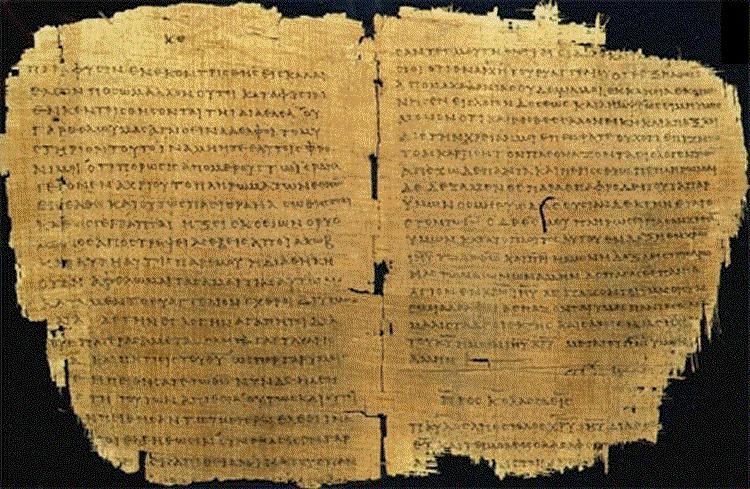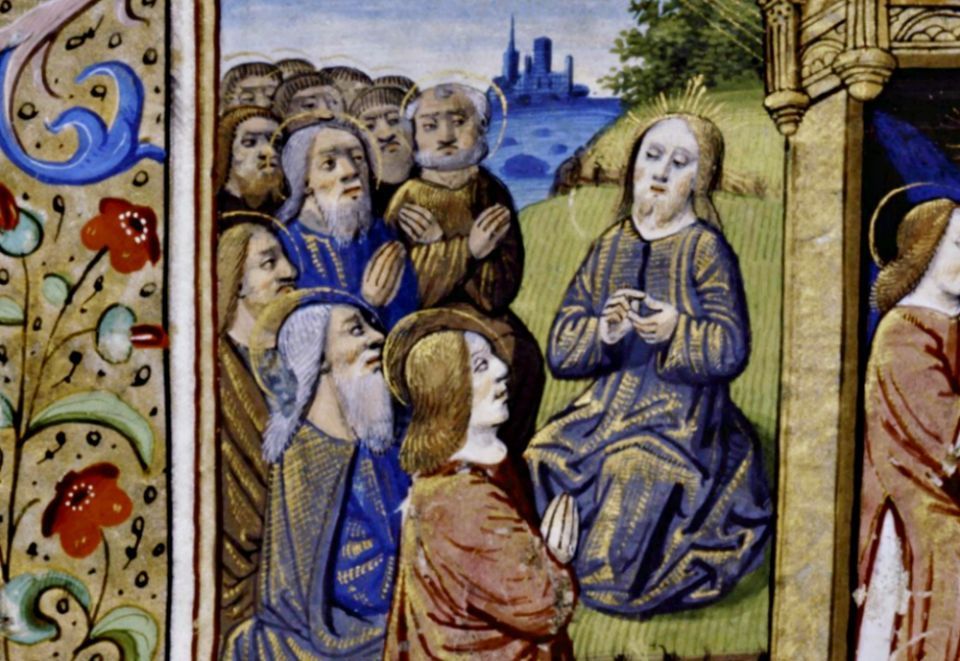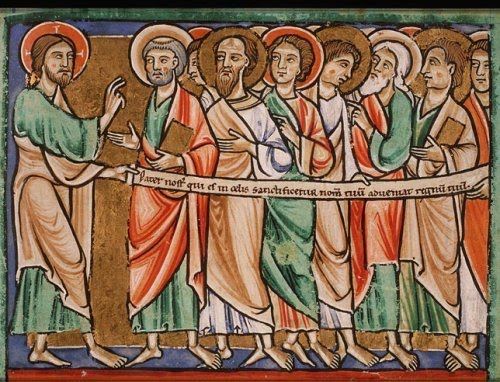Message of Abbot Paul - Tuesday - 20th February 2024
Abbot Paul • February 19, 2024
Yesterday Toby and I went home to my mother’s so that we could celebrate her 97th birthday, albeit five days after the event. As I have to be present at a church maintenance/health and safety meeting on Cardiff on my 77th birthday in two days’ time, we had a joint celebration. In fact, we simply had lunch as usual, though more delicious than ever, and after a short siesta, I took Toby for a walk on the beach. It was a lovely afternoon, calm, peaceful and reflective, and there was so much to thank to good Lord for. My heart was filled with love and gratitude for all the many blessings he has bestowed on me and on my mother throughout our lives and especially at the present moment. I can’t think of another moment in my life when I have felt so loved by God: it’s quite an overwhelming experience.
One of the things that most fascinated his disciples about Jesus was his life of prayer. In addition to going to synagogue like all good Jews on the Sabbath and taking part in the various family gatherings for prayer at home, Jesus loved to go off, often alone, to some lonely place and there spend the night in prayer, in intimate communion with his heavenly Father. At times. three of his disciples would accompany him, usually Peter, James and John. It’s not surprising, then, that they asked him to teach them how to pray; they wanted to pray like Jesus. There are, of course, as many ways of praying as there are people, and each one of us has to discover his or her own way of being with God in prayer. I can’t pray like you and you can’t pray like me, which is why books on prayer can be a hindrance rather than a help! But what does Jesus have to say? What does he teach his disciples? Our Gospel passage today comes from Matthew, (Mt 6: 7-15), from the Sermon on the Mount, and presents us with the words of the Lord’s Prayer, that were adopted by the Church and are familiar to all.
“Jesus said to his disciples: ‘In your prayers do not babble as the pagans do, for they think that by using many words they will make themselves heard. Do not be like them; your Father knows what you need before you ask him.” Jesus makes it quite clear from the start that prayer isn’t a matter of many words. No criticism here of the scribes and Pharisees, but of the pagans, an interesting fact. The prayer Jesus is about to teach them is short and to the point. It is a model of Christian prayer
“Our Father in heaven,
may your name be held holy,
your kingdom come,
your will be done,
on earth as in heaven.
Give us today our daily bread.
And forgive us our debts, as we have forgiven those who are in debt to us.
And do not put us to the test,
but save us from the evil one.”
This is the translation found in the Jerusalem Bible: all translations are slightly different as they use modern English rather than the traditional translation we use in the liturgy. All true prayer takes place within the Body of Christ, the Church, hence ‘we’ and not ‘I’. We pray as a community, in communion with one another, and in praying for one person, we pray for all people. Prayer is always inclusive, never exclusive. The first half of the prayer recognises the majesty of God, who wishes to share his life with us, his children. It also expresses our desire that his will be done in us as it is done in the saints and angels who see him face to face. Only then do we pray for our essential needs, for forgiveness and protection from the evil within and around us. The only word of explanation that Jesus offers on the prayer is the following: “Yes, if you forgive others their failings, your heavenly Father will forgive you yours; but if you do not forgive others, your Father will not forgive your failings either.” God’s gift of forgiveness is dependent on our ability and willingness to forgive those who offend us. Prayer, then, is not a passive repetition of beautiful words and pious thoughts, but the reflection of a life that is dedicated to doing God’s will and sharing his gifts. The Lord’s Prayer reminds us that we must seek to be holy as our Father in heaven is holy.
When we say the prayer that Jesus taught us, it’s important to say each phrase slowly, with reverence and focussing on each word. Don’t be afraid to go back over a phrase and repeat it. Our prayer must descend from our head, our lips and our tongue into our heart and soul, into the very marrow of our being. It must transform us into what God wants us to be, his beloved daughters and sons, intimately united in communion with him, our God and Father.













